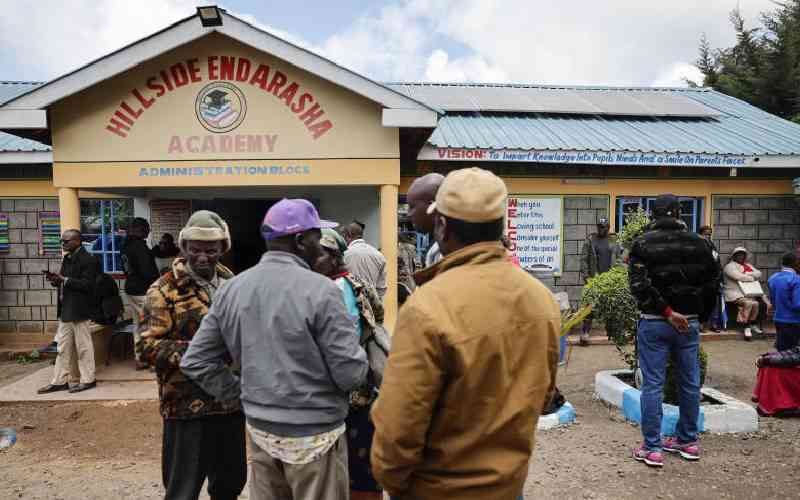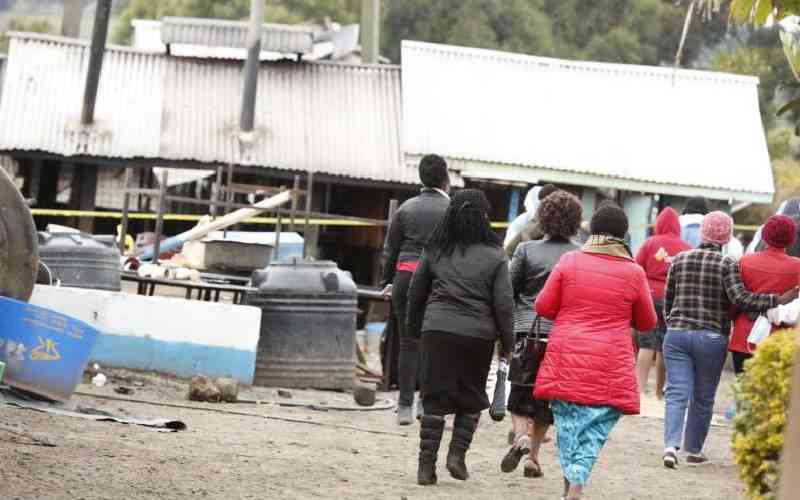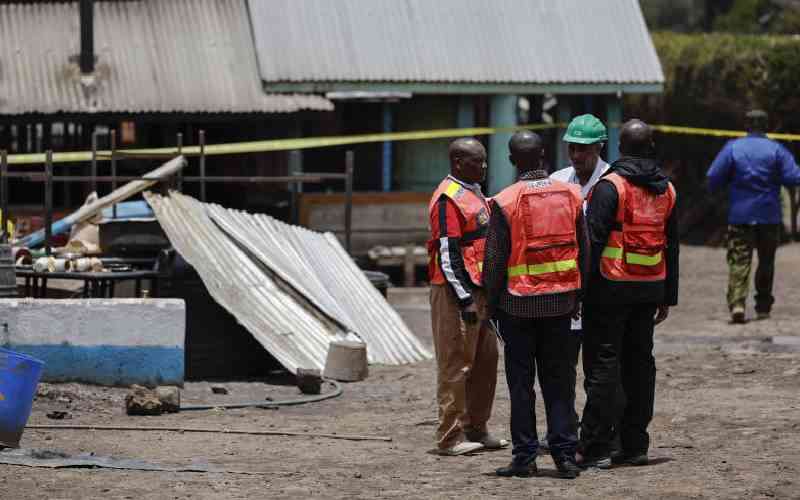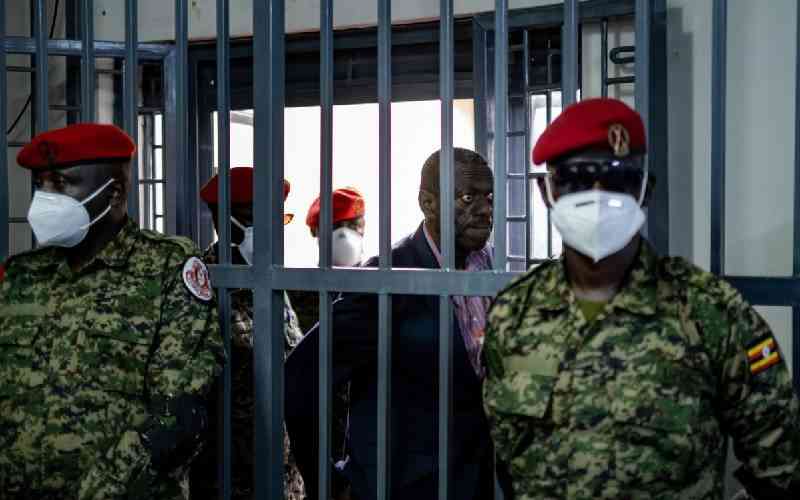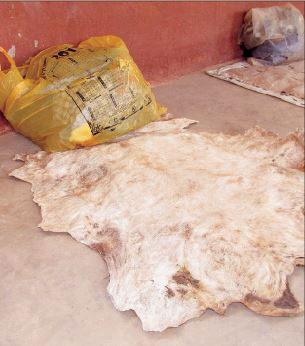 |
|
One of the dried skins used as bedding for pupils. [PHOTOS: NANJINIA WAMUSWA/STANDARD] |
By NANJINIA WAMUSWA
Marsabit, Kenya: As the bell tolls at 6pm signalling the end of the learning day at El Gade primary, pupils pick their books to leave for home.
Talaso Tura Diba, dressed in a pink blouse, long green skirt and a pair of sandals made from tyres, walks past the wire mesh gate. In her hand, hangs a paper bag with exercise books.
Diba, 15, walks for almost one kilometre to get to her new home, which is one among few manyattas.
In the manyatta, Diba sojourns with strangers. Her thirst for education saw her leave her Gocha village, over 35km away, to study at El Gade Primary located in Kalacha Location, North Horr Constituency within Marsabit County.
“I want to study hard, become a doctor and help people who are sick in our village. There are no doctors in our village,” she begins.
She continues: “My home is very far and l could not travel to and from school every day. Since there are no boarding facilities in the school, l decided to live with a stranger close to the school just to realise my dream.”
Seek accommodation
Head teacher Shamo Keya says the school has 255 pupils – 155 boys and 100 girls. He explains that 67 pupils – 47 boys and 20 girls – are from areas as far as 50km away and cannot make it to school every day. The school decided to seek accommodation for them within the neighbourhood.
“We pleaded with neighbours to accept and host 20 girls as we look for means to keep them in school in future,” he says adding that, thankfully, they accepted.
He discloses that the 47 boys temporarily slept in one of the classes until two years ago when North Horr Constituency constructed a dormitory using Constituency Development Fund (CDF) money - unfortunately, they did not provide bedding.
A visit to the dormitory reveals that the 47 pupils using the boarding facility sleep on dried skins, cartons, old sacks and even paper bags.
Their belongings are kept in handbags, paper bags or wrapped using old clothes and placed next to their bedding.
One of the boys using the boarding facility is John Omuro who hails from Dakane village, almost 40km away. Omuro, 14, is in Standard Eight and wants to be a teacher.
He says the dormitory, despite its wanting status, is a relief to him.
Stay informed. Subscribe to our newsletter
“At least l can sleep within the school compound. That’s what matters to me, for now,” says Omuro who sleeps on a dry skin.
All the pupils who spoke to this writer expressed enthusiasm to study hard and become lawyers, teachers, pilots, nurses and doctors.
Mr Keya says the pupils have overcome many barriers to be in school.
“This is a community that does not value education. They see girls as wealth in terms of bride price, and who should be married off as soon as possible. And the boys need to be herding their cattle.”
No food
The headmaster says it is not easy running the school. First, there’s no food and he has to solicit donations from well wishers and non-governmental organisations to feed the pupils.
He says the community is poor and it would have been a problem if their school girls had to share meals with their hosts.
“To avoid a lot of trouble, we make sure our girls have dinner at school and just go home to sleep,” says the head teacher.
The pupils face a lot of challenges. Diba says that although her host is accommodative, she has a large family and they are forced to squeeze into the manyatta.
“I wish we had a dormitory,” says Diba who is in Standard Eight. They have no light to study in the evening. They also have no stationery.
The boys who sleep in the dormitory suffer a lot, especially at night because it is normally very cold.
Despite the hardships, the school built in 2000 by North Horr Catholic Mission, tried its best and in last year’s KCPE exams, its top pupil Isacko Bora Afira scored 381 marks and is now admitted at Alliance High School. The last pupil had 247 marks.
In 2012, the school had 28 candidates – five girls and 23 boys. Last year it had 12 candidates – nine boys and three girls.
The headmaster is appealing to the Government and well wishers to help children from pastoral communities realise their dreams.
 The Standard Group Plc is a
multi-media organization with investments in media platforms spanning newspaper
print operations, television, radio broadcasting, digital and online services. The
Standard Group is recognized as a leading multi-media house in Kenya with a key
influence in matters of national and international interest.
The Standard Group Plc is a
multi-media organization with investments in media platforms spanning newspaper
print operations, television, radio broadcasting, digital and online services. The
Standard Group is recognized as a leading multi-media house in Kenya with a key
influence in matters of national and international interest.
 The Standard Group Plc is a
multi-media organization with investments in media platforms spanning newspaper
print operations, television, radio broadcasting, digital and online services. The
Standard Group is recognized as a leading multi-media house in Kenya with a key
influence in matters of national and international interest.
The Standard Group Plc is a
multi-media organization with investments in media platforms spanning newspaper
print operations, television, radio broadcasting, digital and online services. The
Standard Group is recognized as a leading multi-media house in Kenya with a key
influence in matters of national and international interest.


